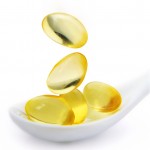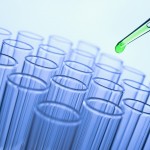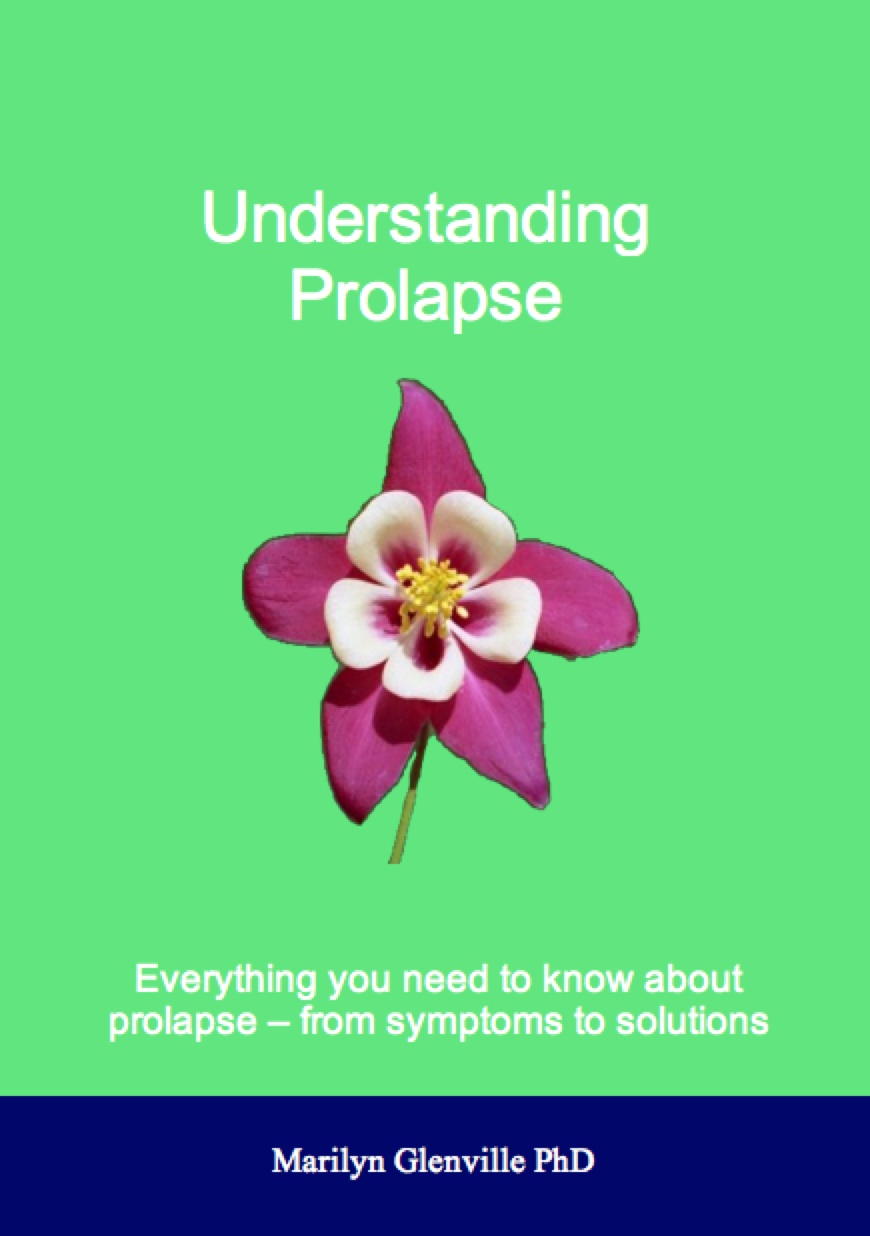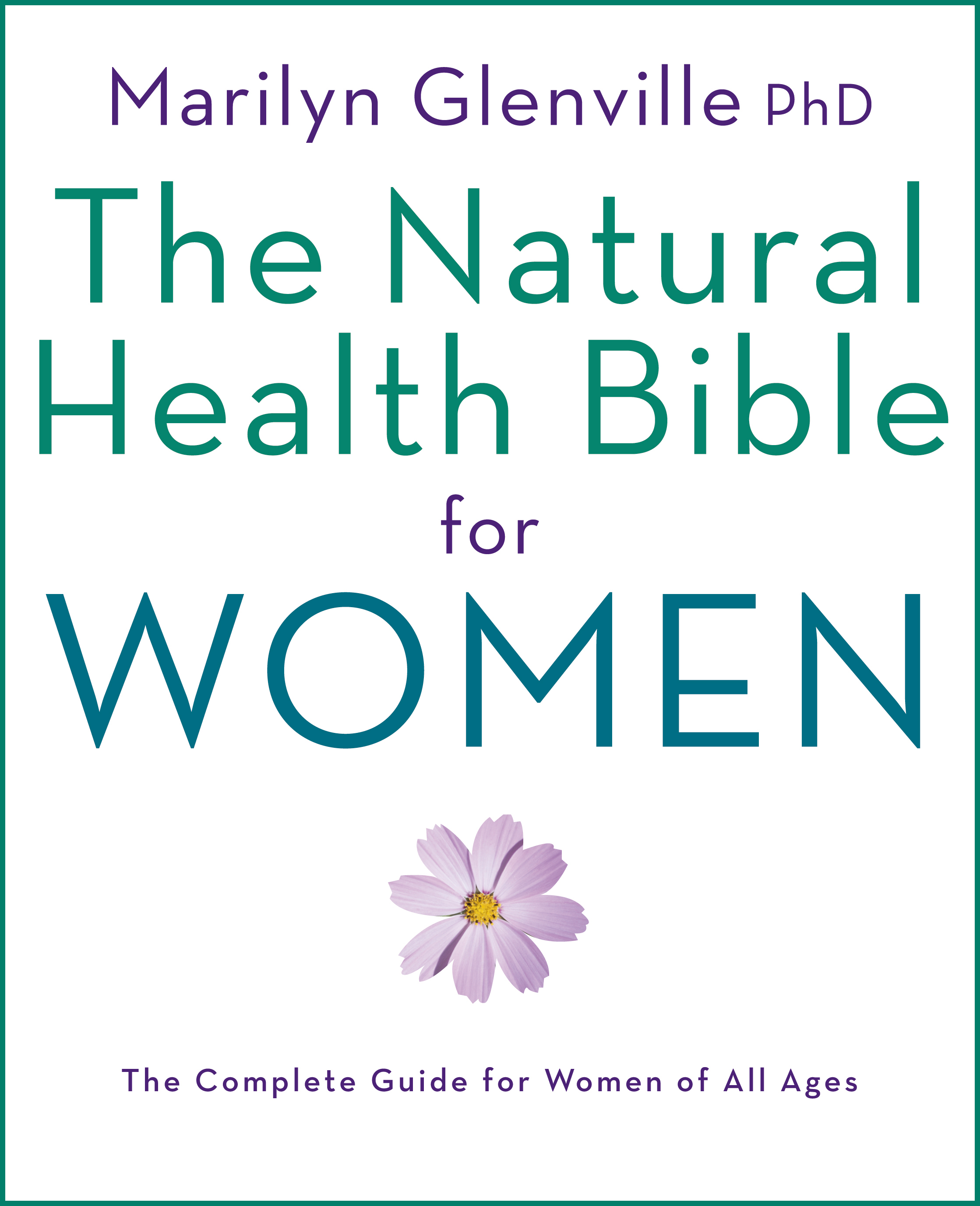Prolapse

What is a prolapse?
Prolapse literally means ‘to fall’ or ‘slip out of place’, and the term can relate to different organs in the body. It is possible to have a rectal (prolapse of the rectum), bladder, vaginal or womb (uterine) prolapse and some of these can occur at the same time.
Womb prolapse
The womb is held in place by the pelvic floor muscles and supporting ligaments. When these muscles start to weaken and/or the supporting ligaments lose their elasticity, the womb starts to drop down into the vagina. It is also called a ‘dropped’ womb and refers to the sagging of the womb into the vagina or even out of the body.
A prolapse of the womb can also be common around the menopause because the muscle support often becomes thinner when the hormone levels – in particular oestrogen – are reduced.
Vaginal Prolapse
The front and back walls of the vagina can become weakened, and it begins to move downwards, often turning itself inside out. Normally, as the womb prolapses, the vagina will also drop. Unfortunately the biggest risk of vaginal prolapse is after a hysterectomy (where the womb is removed), sometimes years later, because the vagina may have become weakened during surgery.
Prolapse of the bladder (Cystocele)
The bladder normally sits directly above the vagina but if there any weakness at the top of the vagina, this can cause the bladder to drop down, where it begins to bulge into the vagina itself. This is called a cystocele. This type of prolapse can lead to recurrent urinary tract infections in some women, while others will experience stress incontinence. Again, some women will experience no symptoms at all.
Prolapse of the urethra (Urethrocele)
This type of prolapse differs from that of a cystocele in that only the urethra, the tube that leads from the bladder to the outside of the body, drops down. In this case, the bladder itself normally remains in position. A urethrocele can cause stress incontinence, particularly if you are suffering from both a cystocele and urethrocele. In this condition, there is an increased risk of urinary tract infections and pain on intercourse.
Prolapse of the rectum (Rectocele)
If the lower part of the vagina, which is normally tight, is weakened, then the rectum (which is the last part of the colon before the anus) can bulge into the vagina. Some women can remain unaware that they are suffering from a prolapsed rectum, while others will experience severe constipation, as stool becomes ‘trapped’ in the pouch formed by the bulge, making it difficult to defecate.
What symptoms could you experience?
The symptoms for all of the different types of prolapse can be similar. Some women experience few if any symptoms, but others can find a prolapse debilitating. Some of the most common symptoms include:
- Lower back pain
- A dragging sensation or feeling of ‘something falling out’
- Stress incontinence (where small amounts of urine are passed while sneezing, coughing or exercise)
- Constipation
- Difficult or painful sex
Stress incontinence
Stress incontinence is a common condition, and it is caused by a variety of factors, including most of those that can lead to prolapse. Many women first experience stress incontinence during pregnancy, when the weight of the baby presses down on the pelvic floor, weakening bladder control. Following the birth, the pelvic floor muscles can be weakened so that normal control is not resumed for several months (or even years), unless exercises are regularly practised.
Common symptoms of stress incontinence include leaking when you cough, laugh or sneeze, leaking when you are exercising or lifting, having little warning of the need to pass water, which means that you may not reach the toilet in time, and occasionally an increased urgency or need to pass water. Some women may find that they dribble urine without even realising it.
Dealing with stress incontinence
Stress incontinence can occur simply because your pelvic floor muscles have become weakened (through pregnancy and childbirth or during the menopause, for example), and this weakening can result in a lack of control over the bladder. You can also suffer from stress incontinence because of a prolapse. If leaking is your most troublesome symptom and other aspects of the prolapse are not causing you problems, then it is worth exploring other options (such as cones, pessaries, pelvic floor exercises) to help the leakage.
Vaginal Toners
There are a number of different vaginal toners available. One called the Pelvic Toner is a highly effective, simple to use device that has been specifically designed to help you get the most from your pelvic floor muscle exercises.
Following the key principles identified by Arnold Kegel, the Pelvic Toner helps you identify and isolate the correct muscles and then you exercise by squeezing against resistance.
You get instant feedback to show you are squeezing correctly and, as you improve, you can increase the resistance in stages to make your exercise more demanding. A strong healthy pelvic floor system helps improve your sex life and can prevent prolapse and incontinence.
It does require effort from you so if are you looking for an easier approach then you will need to choose an electric model, such as the Pelvic Muscle Trainer. This electric device uses a mild electric stimulation that enervates the pelvic floor muscles for perfect Kegels every time and there is no effort on your part.
If you would like to buy either of these vaginal toners you can get them through The Natural Health Practice.
What are your choices?

Supplements

Multivitamin and Mineral
A good quality multivitamin and mineral would form the foundation of your supplement programme to make sure that you are getting a ‘little bit of everything’. You then add in those nutrients in slightly higher amounts which are known to be helpful for prolapse.
Vitamin C with bioflavonoids
We know that vitamin C and also bioflavonoids help with the formation of collagen so it is important that you take these nutrients in supplement form if you are suffering from either prolapse or stress incontinence, or both.
Vitamin A
This vitamin is known to help the body produce collagen, and can also encourage the strength of your cartilage (which is required to keep the organs and other structures in the pelvic area in position). Make sure you get plenty in your daily diet, and take vitamin A as a supplement.
Manganese
This mineral is needed for healthy bones, cartilage and skin. There is usually enough in a good multivitamin and mineral to cover any deficiency that might be at the root of your pelvic weakness.
Herbs

Dong Quai
This herb is classed as an uterine tonic as it increases circulation to the womb, nourishing it and keeping it generally healthy.
Caution
You should not take any of the above herbs if you are taking, The Pill, Fertility drugs, HRT or any other hormonal treatment or other medication unless they are recommended by a registered, experienced practitioner.
For more information on the herbs which are helpful for vaginal prolapse see the rest of the Understanding Prolapse ebook at The Natural Health Practice, which you can download.
Tests

Mineral Deficiency Test with Supplement Programme (hair)
Find out what the mineral and heavy toxic levels are in your body
This test measures the deficiencies and excess levels of 12 different minerals (including calcium, chromium, cobalt, copper, iron, magnesium, manganese, phosphorus, potassium, selenium, sodium and zinc) and 6 heavy toxic metals (including aluminium, arsenic, cadmium, lead, mercury and nickel) that may be present in your body. Find out more – Mineral Deficiency Test with Supplement Programme (hair)
Online Personalised Supplement Assessment Programme
Discover what vitamins and minerals you need and should be taking
The analysis of this comprehensive questionnaire will give you a three monthly supplement programme to help balance any vitamin and mineral deficiencies you may have. Find out more – Online Personalised Supplement Assessment Programme
After three months you would then have a re-test in order to monitor your progress and adjust your supplement programme according to your new condition.
If you need help in obtaining any of the supplements, herbs or tests mentioned above, click, Prolapse options at The Natural Health Practice. They can supply all of them for you online or if you prefer to talk to somebody first you can also order by mail order on the telephone. The products supplied by this company are always of the highest quality.
Plan of Action
Nutrition
Ensure you are getting the right nutrition.Follow the dietary recommendations outlined in the free The Foundation of Health ebook For more information on the special dietary recommendations for prolapse, read the rest of the ebook on Understanding Prolapse ebook at The Natural Health Practice
Supplements
The supplement programme below should be taken for at least three months in order to achieve best results
Nutrients & amounts
| A good multi-vitamin & mineral supplement | Vitamin-A | 7mg as beta-carotene | |
| Vitamin C with bioflavonoids | 1000mg (magnesium ascorbate alkaline form) | Manganese | 5mg |
| Proanthocyanidins | 50mg |
To avoid having to purchase numerous supplements for all of the above and to make the process easier, I have put together a supplement programme which contains all the nutrients mentioned above and in the correct dosages. For more information about these click Prolapse Supplement Programme.
In my book ‘The Natural Health Bible for Women’ I explain the impact of nutrition on prolapse and also give in great detail a list of the most important nutrients and herbs required in order to help you.
If you would like to order these special supplements now, you can do so through the Natural Health Practice by clicking Prolapse Supplements at the Natural Health Practice.
HerbsGood herbs should include: |
Herbs & amounts
|
||
| At the end of three months you should reassess your condition and adjust your supplement programme accordingly. | |||
Tests
The tests below have been specially selected to be the most helpful if you are concerned about prolapse.
Mineral Deficiency Test with Supplement Programme (hair)
Online Personalised Supplement Assessment Programme
After three months you would then have a re-test in order to monitor your progress and adjust your supplement programme according to your new condition.
If you need help in obtaining any of the supplements, herbs or tests mentioned above, click, Prolapse options at The Natural Health Practice. They can supply all of them for you online or if you prefer to talk to somebody first you can also order by mail order on the telephone. The products supplied by this company are always of the highest quality.
Read More

At the end of the ebook is a practical step by step summary of what you can do to help yourself.
If you would like to read the rest of this ebook click, Understanding Prolapse ebook at The Natural Health Practice and you will be given details of how you can download the whole ebook.

The contents of this site are for information only and are intended to assist readers in identifying symptoms and conditions they may be experiencing. This site is not intended to be a substitute for taking proper medical advice and should not be relied upon in this way. Always consult a qualified doctor or health practitioner, especially if you are pregnant, taking the pill or on any medication. Your situation will need to be looked at individually and you should not attempt to self treat. The author and publisher cannot accept responsibility for illness arising out of the failure to seek medical advice from a doctor.
The views expressed by third parties placing material on these pages are not representative of the views of the author or publisher. The Author and Publisher cannot monitor the content not produced by us and has not reviewed all the third party material published on this site and the Author and Publisher accept no liability whatsoever in relation to the content of third party material placed on these pages.

